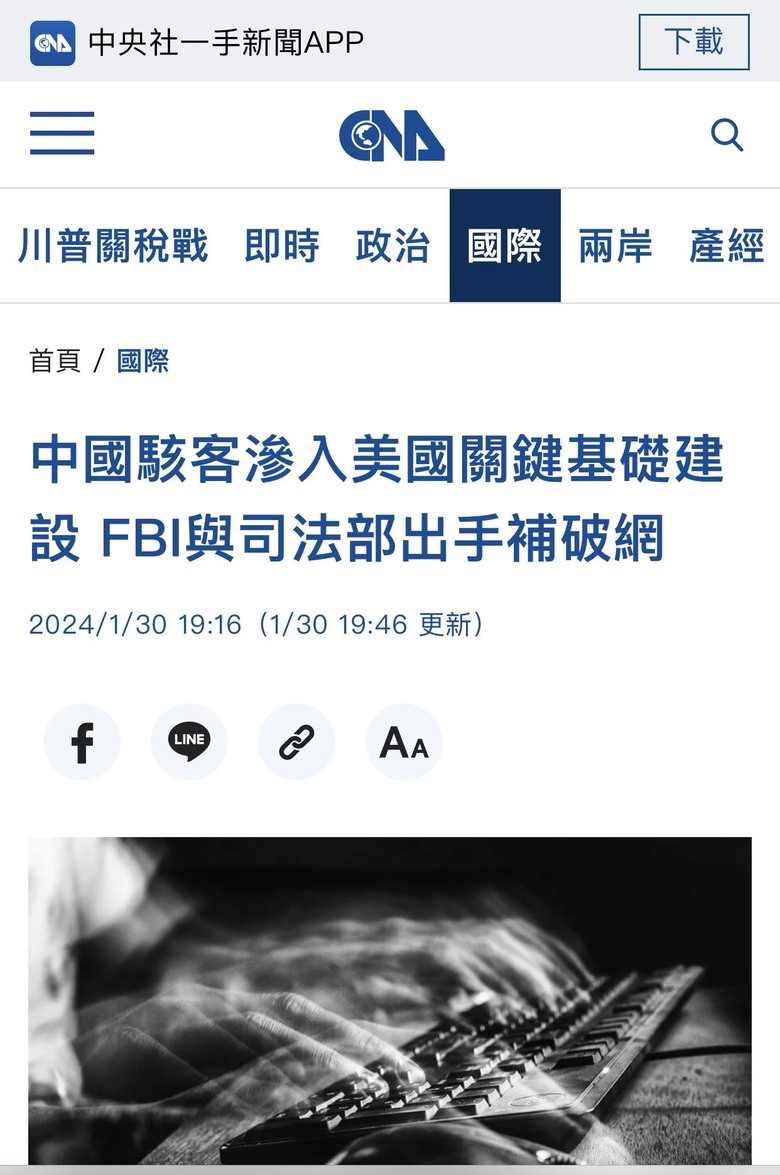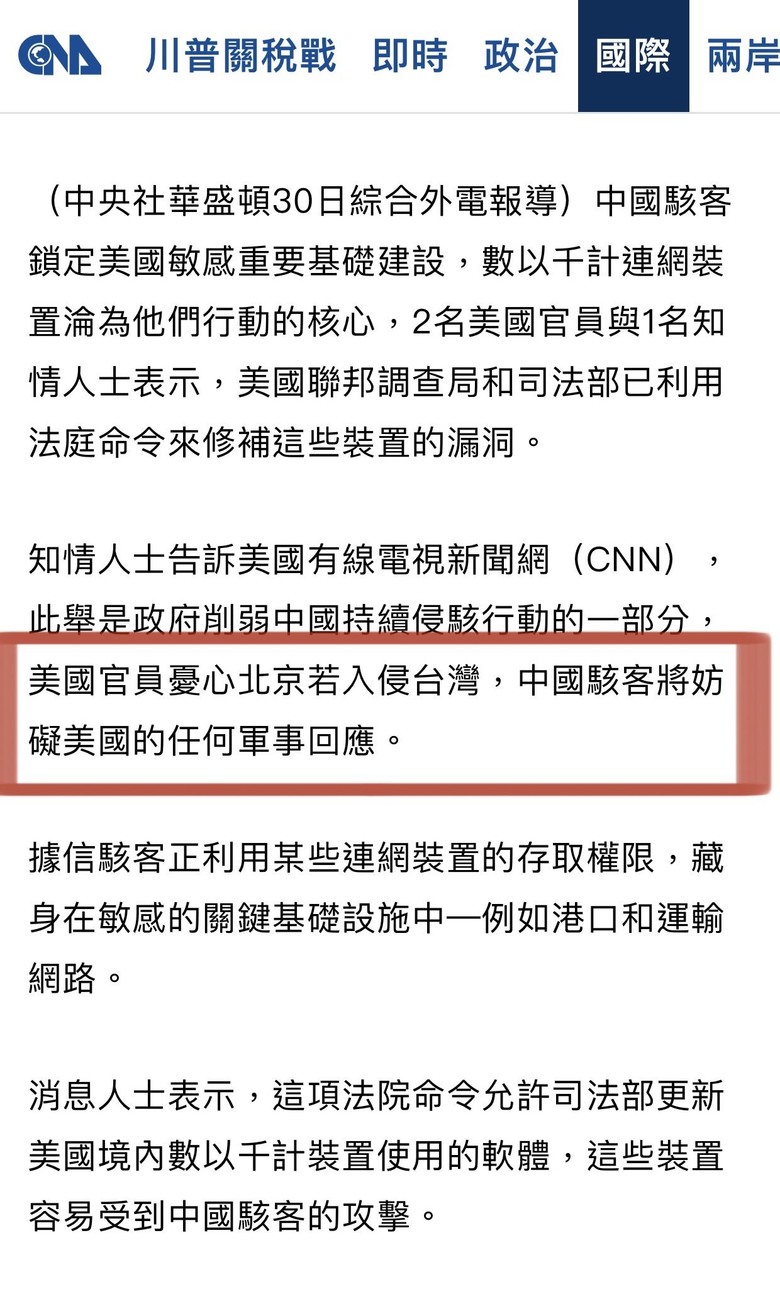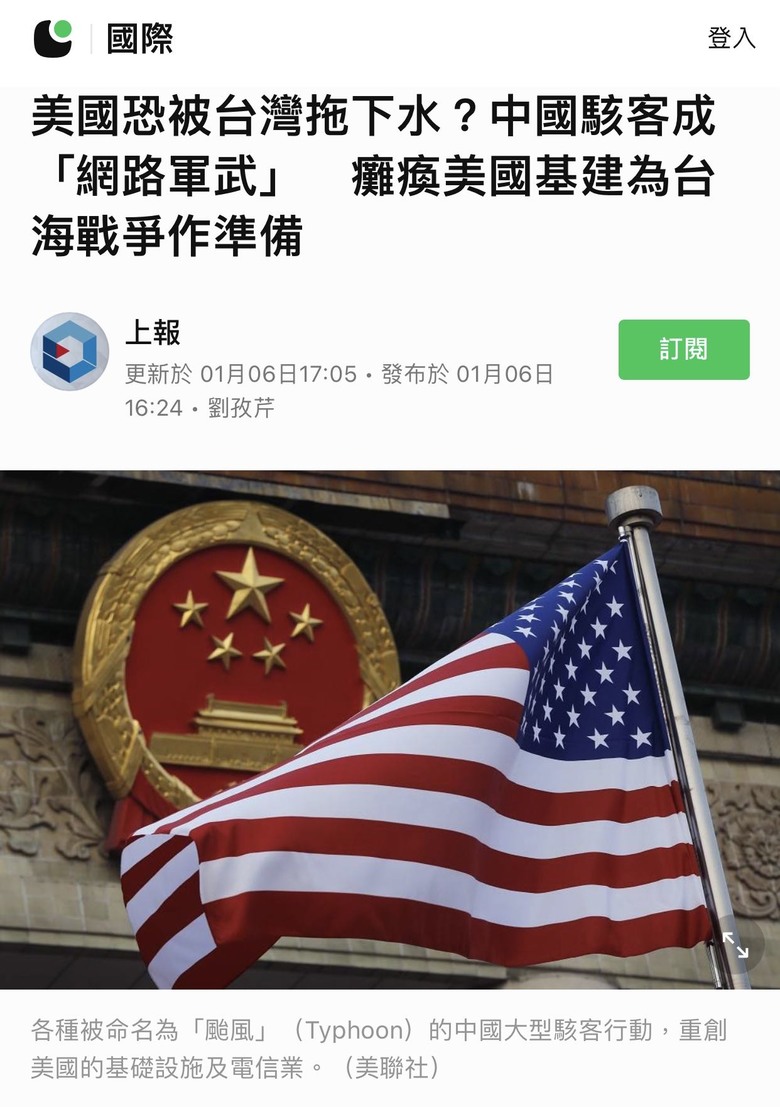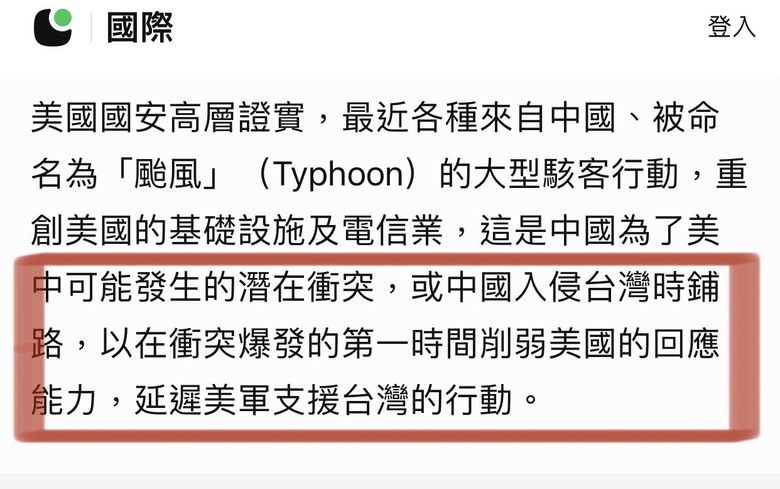哪邊能看到美國商務部原文有台海開戰這一段???
------------------------------------------------------------------------------
拜登政府卸任前 敲定中國汽車軟硬體禁令規定
(中央社華盛頓14日綜合外電報導)即將卸任的拜登政府今天敲定一項禁令規定,將實質上禁止幾乎所有的中國汽車和卡車進入美國市場,這是華府管制中國汽車軟體和硬體行動的一環。
路透社報導,美國政府去年對中國進口電動車課徵高關稅後,採取了這項最新動作。美國商務部本月透露,目前正考慮對中國製無人機採取類似的管制行動。
美國商務部長雷蒙多(Gina Raimondo)告訴路透社:「這真的很重要,因為我們不希望200萬輛中國汽車上路後,才意識到…我們面臨威脅。」她受訪時表示,這是基於國家安全考量。
商務部去年9月針對美國道路上的中國汽車軟體和硬體提出一項全面禁令,其中軟體禁令將從2027年車款開始生效,硬體禁令則是從2029年車款開始生效。此外,這些禁令也禁止中國汽車公司在美國道路上進行自動駕駛測試。
這些禁令也涵蓋俄羅斯車輛和零件。
------------------------------------------------------------------------------------
美國新規生效:禁止使用中國智能網聯汽車軟硬體
2025年3月17日,美國商務部發佈規則,對進口和銷售與中國和俄羅斯有關的網聯車輛(CV)和相關元件施加了全面限制。
相關關鍵定義:
Connected Vehicle(CV),網聯汽車是指由機械動力驅動或牽引,主要為在公共街道、公路和高速公路上使用而製造的汽車,該汽車整合了車載網路硬體和汽車軟體系統,可通過專用短程通訊、蜂窩式電信連接、衛星通訊或其他無線頻譜連接與任何其他網路或裝置進行通訊。本擬議規則的限制範圍不包括僅在鐵路線上運行的車輛。
Automated Driving System(ADS),自動駕駛系統是指能夠為網聯汽車整車持續執行整個動態駕駛任務的硬體和軟體的總稱,無論其是否僅限於一個特定的運行設計域。
Vehicle Connectivity System (VCS),車輛連接系統是指用於網聯汽車整車的硬體或軟體,其功能是以450兆赫以上的頻率傳輸、接收、轉換或處理射頻通訊。
VCS hardware,車輛連接系統硬體是指支援車輛連接系統功能或作為支援車輛連接系統功能的部件的下列軟體或可程式設計部件和子部件:微控製器、微型電腦或模組、片上系統、網路或遠端資訊處理單元、蜂窩數據機/模組、Wi-Fi微控製器或模組、藍牙微控製器或模組、衛星導航系統、衛星通訊系統、其他無線通訊微控製器或模組以及外部天線。車輛連接系統硬體不包括對車輛連接系統硬體的通訊功能無作用的部件(如支架、緊韌體、塑料和無源電子元件)。
CV規則的關鍵組成部分如下:
CV規則側重於兩個主要類別:車輛連接系統(VCS)和自動駕駛系統(ADS)。VCS包括“直接啟用”450MHz以上無線電頻率的傳輸、接收或處理的硬體和軟體。ADS包括能夠執行聯網汽車整個動態駕駛任務的硬體和軟體。
肉圓沒加辣 wrote:
「使用中國製造軟硬體的聯網車輛,透過手機、藍牙和 Wi-Fi 連接到外部世界,成為巨大的資安脆弱環節。」美國國家安全顧問 Jack Sullivan 引用 FBI 的分析表示,中國正在設法將木馬與後門送進電網、水力系統和其他基礎設施,一旦中國進攻台灣,他們就能干擾基礎設施,延後美軍的反應時間。
https://www.cna.com.tw/news/aopl/202401300293.aspx


https://today.line.me/tw/v3/article/OpvMMlW


能查到的美國新聞大致就是這樣,不管路透社,BBC...內容都一樣
因為"新聞"不能造假斷章取義或是加入記者個人意見,只能忠實地發表,外國記者大都會遵守自己的本分,這樣才能建立媒體的權威性(但國外很多小媒體就很難講了)
如果是"評論"那就跟各家政論節目一樣隨大家天南地北的扯,編故事也無所謂,但是不能當作"新聞"發布
查了半天完全查不到禁止車用軟體和Typhoon駭客組織有關連的新聞,都是個別獨立且不相關的新聞
------------------------------------------------------------------
前商務部長發言
US to ban Chinese tech in cars
The US is planning to ban certain hardware and software made in China and Russia from cars, trucks and buses in the US due to security risks.
Officials said they were worried that the technology in question, used for autonomous driving and to connect cars to other networks, could allow enemies to "remotely manipulate cars on American roads".
There is currently minimal use of Chinese or Russia-made software in American cars.
But Commerce Secretary Gina Raimondo said the plans were "targeted, proactive" steps to protect the US.
“Cars today have cameras, microphones, GPS tracking, and other technologies connected to the internet," she said in a statement.
"It doesn’t take much imagination to understand how a foreign adversary with access to this information could pose a serious risk to both our national security and the privacy of US citizens."
Chinese officials said the US was broadening "the concept of national security" to unfairly target Chinese firms.
“China opposes the US’s broadening of the concept of national security and the discriminatory actions taken against Chinese companies and products,” said Lin Jian, spokesman for China’s Foreign Ministry, in a statement.
“We urge the US side to respect market principles and provide an open, fair, transparent, and non-discriminatory business environment for Chinese enterprises.”
The proposal, which will now enter a comment period, is the latest from the White House aiming to limit China's presence in the car manufacturing supply chain.
The White House has also raised tariffs on electric cars, batteries for electric vehicle and a range of other items. It has separately banned the import of Chinese-made cargo cranes, warning of cyber-security risk.
-------------------------------------------------------------------------
美國國家安全顧問的發言
White House finalizes rules banning Chinese, Russian tech in connected cars
“Connected vehicles yield many benefits, but software and hardware sources from the PRC [People’s Republic of China] and other countries of concern pose grave national security risks,” said national security adviser Jake Sullivan in a statement. “Today, we are taking strong action to protect Americans against these national security risks by safeguarding our critical infrastructure and automotive supply chain.”
內文搜尋
X





























































































